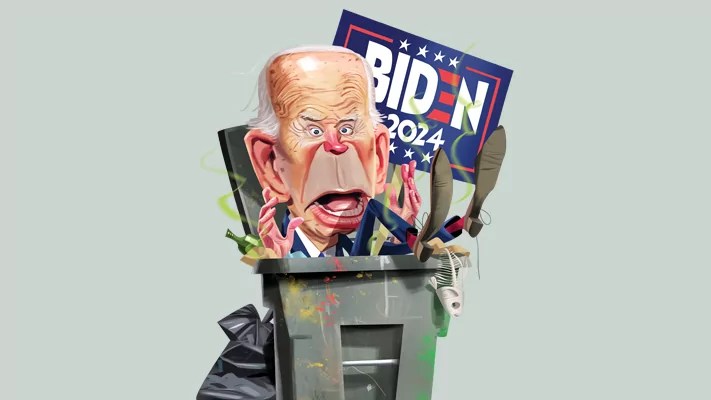5 Financial ‘Bubbles’ That Made Gamestop Look Like Nothing
In recent days, amateur investors coordinated on social media to buy massive quantities of stock in GameStop, AMC Entertainment, and other companies. After multibillion-dollar hedge funds took massive losses due to the rising prices, trading platforms — including Robinhood, which claims to democratize finance — halted trading of GameStop’s shares.
There are many important themes to consider with this incident — especially the power of financial elites and government regulators over access to the markets. Regardless of its implications for American society in 2021, future financiers will likely study the GameStop incident, perhaps as a bubble.
Economist Hyman Minsky once famously explained that bubbles — sometimes called “credit cycles” — follow the course of displacement, boom, euphoria, profit-taking, and panic.
In essence, a surge of funds available for investment leads to inflating asset prices. More and more investors try to get a piece of the action. Smart investors foresee a crash and pull their money out of the market before a massive selloff.
Sound familiar? American financial markets certainly saw these themes at play with GameStop. Small investors wagered their stimulus checks in a coordinated manner to inflate the share prices. People watched their friends get rich and tossed their hats into the ring. On Tuesday — after investors sold off shares and trading platforms stopped allowing users to buy in — GameStop stock plummeted from almost $470 to under $200.
Beyond GameStop, here is a look back at some of the wildest bubbles in the history of Western finance.
Tulipmania
For a brief moment in Dutch history, investors lost their minds — and fortunes — over the price of flowers.
The tulip made its way to continental Europe in the 16th century from the Ottoman Empire and quickly became a desired decoration for wealthy landowners. Within a few decades, a single bulb could serve as sufficient dowry for a bride.
Citizens began mortgaging their homes and businesses to purchase bulbs, as well as a variety of futures contracts and derivative investments. One account records that a trader once exchanged a single tulip bulb for eight pigs, twelve sheep, four oxen, and several tons of wheat, barley, cheese, and rye.
By early 1637, investors began to default on their agreements to buy tulips, leading to bankruptcies and the crash of the bulb market. Though modern historians debate the extent to which middle-class people were involved in the speculation, there is no doubt that many Dutch pocketbooks were unceremoniously emptied by the affair.
South Sea Bubble
British investors suffered enormous losses after believing false hopes from a company that promised massive trading revenues.
The South Sea Company formed in 1711 under the presupposition that the War of Spanish Succession would conclude in a treaty enabling prosperous trade in the New World. Though the promised profits never materialized, speculative fervor picked up in 1718 after King George I became the company’s governor. Parliament approved the refinancing of British debt into shares of the South Sea Company.
The share price increased from roughly 129 pounds in January 1720 to over 1,000 pounds by August. However, the stock price tanked later in the same year.
Junk Bond Bubble
In the 1980s, investment bankers like Michael Milken began using “junk bonds” — high-risk, high-yield securities offered by small companies — to conduct “leveraged buyouts” of large corporations.
Over 2,000 leveraged buyouts occurred in the 1980s. Private equity traders purchased and resold companies like Safeway, BlackRock, and Marvel Entertainment.
The junk bond market grew tremendously over the course of a decade, ballooning from $10 billion in 1979 to $189 billion in 1989. The bubble burst when Rudy Giuliani — then the United States Attorney for the Southern District of New York — prosecuted Milken.
Dotcom Bubble
As internet technology advanced in the late 1990s, investors began dumping cash into up-and-coming firms with no physical assets and no profits — a telltale sign of speculation.
To make matters worse, the Taxpayer Relief Act of 1997 made investing in stocks with low or nonexistent dividends — such as startups recently introduced to the public markets — extremely advantageous to investors. For several years, money poured into technology companies.
The bottom soon began falling out of the market. Pets.com folded less than a year after completing its initial public offering. By the end of 2002, $5 trillion in wealth had been erased on American stock exchanges.
Speculation over Silicon Valley startups persists to this day. Uber and Lyft — which had hardly turned profits — witnessed famously embarrassing IPOs in 2019.
Housing Bubble
In 2006 and 2007, rampant and undisciplined lending in the real estate market led to the collapse of the American economy.
Banks issued “subprime loans” — also known as NINJA (no income, no job, no assets) mortgages — to Americans who were not financially stable enough to purchase a house. Derivative investments based on the mortgages started circulating on Wall Street.
As Margot Robbie in the film “The Big Short” describes, markets crashed once Americans began defaulting on their mortgages.
Bringing history full circle in a far less engaging fashion, “The Daily Show” host Trevor Noah photoshopped his face over Robbie’s to explain the GameStop affair.
Margot Robbie wasn't available to explain this GameStop situation in a bathtub, so this is the best we could do. pic.twitter.com/Mw1dabmIzQ
— The Daily Show (@TheDailyShow) January 28, 2021
Related: Is The GameStop Surge A ‘Pump And Dump’? No Evidence Indicates That Yet
The Daily Wire is one of America’s fastest-growing conservative media companies and counter-cultural outlets for news, opinion, and entertainment. Get inside access to The Daily Wire by becoming a member.
" Conservative News Daily does not always share or support the views and opinions expressed here; they are just those of the writer."


Now loading...